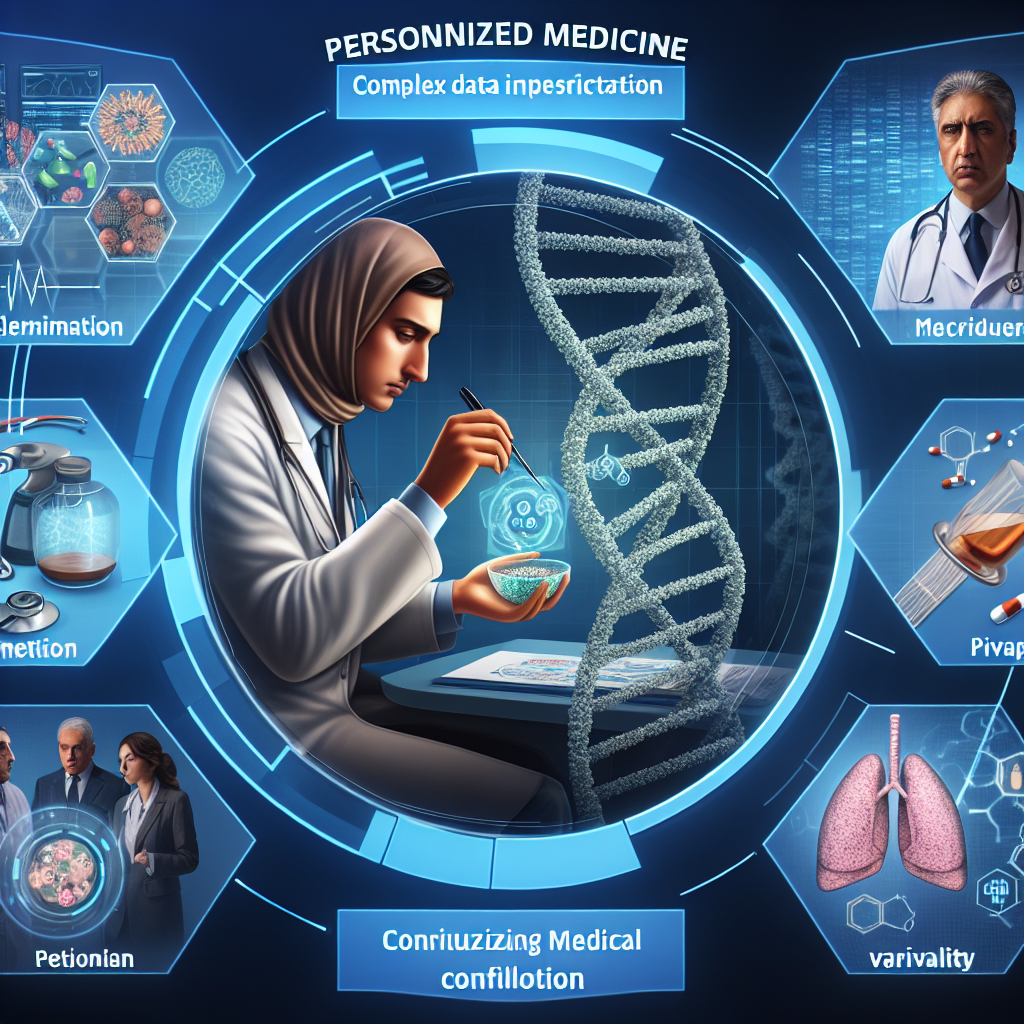Unveiling Personalized Medicine: Emerging Trends and Key Challenges

Personalized medicine, also known as precision medicine, is revolutionizing the healthcare landscape by tailoring medical treatment to the individual characteristics of each patient. This approach considers genetic, environmental, and lifestyle factors to optimize therapeutic efficacy and minimize adverse effects. As the field continues to evolve, it presents both exciting opportunities and significant challenges. This article delves into the emerging trends and key challenges in personalized medicine, providing a comprehensive overview of its current state and future potential.
1. The Rise of Genomic Medicine
Genomic medicine is at the forefront of personalized healthcare, leveraging the power of genetic information to guide clinical decision-making. The completion of the Human Genome Project in 2003 marked a pivotal moment, providing a blueprint for understanding the genetic basis of disease. Since then, advances in genomic technologies have accelerated the integration of genomics into clinical practice.
1.1 Advances in Genomic Sequencing
Next-generation sequencing (NGS) technologies have dramatically reduced the cost and time required for sequencing entire genomes. This has enabled large-scale genomic studies and the identification of genetic variants associated with various diseases. For instance, the cost of sequencing a human genome has plummeted from $100 million in 2001 to less than $1,000 today, making it accessible for routine clinical use.
NGS has facilitated the discovery of rare genetic mutations that contribute to complex diseases such as cancer, cardiovascular disorders, and neurodegenerative conditions. By identifying these mutations, clinicians can develop targeted therapies that address the underlying genetic causes of disease, improving patient outcomes.
1.2 Pharmacogenomics: Tailoring Drug Therapy
Pharmacogenomics is a key component of personalized medicine, focusing on how genetic variations influence an individual’s response to drugs. By understanding these genetic differences, healthcare providers can prescribe medications that are more effective and have fewer side effects.
For example, the presence of specific genetic markers can predict a patient’s response to anticoagulant drugs like warfarin. By tailoring the dosage based on genetic information, clinicians can reduce the risk of adverse events such as bleeding or clotting. This approach not only enhances patient safety but also optimizes therapeutic outcomes.
1.3 Case Study: BRCA Mutations and Breast Cancer
The identification of BRCA1 and BRCA2 gene mutations has transformed the management of breast and ovarian cancer. Women with these mutations have a significantly increased risk of developing these cancers, prompting the development of targeted interventions.
Genetic testing for BRCA mutations allows for early detection and preventive measures, such as prophylactic surgery or enhanced surveillance. Additionally, PARP inhibitors, a class of drugs specifically effective in BRCA-mutated cancers, have shown promising results in clinical trials, offering new hope for patients with these genetic profiles.
1.4 Ethical Considerations in Genomic Medicine
While genomic medicine holds immense promise, it also raises ethical concerns related to privacy, consent, and data security. The collection and storage of genetic information require robust safeguards to protect patient confidentiality and prevent misuse.
Informed consent is crucial, ensuring that patients understand the implications of genetic testing and the potential impact on their families. Additionally, equitable access to genomic medicine must be addressed to prevent disparities in healthcare delivery.
1.5 Future Directions in Genomic Medicine
The future of genomic medicine lies in the integration of multi-omics data, combining genomics with other ‘omics’ fields such as proteomics and metabolomics. This holistic approach will provide a more comprehensive understanding of disease mechanisms and enable the development of personalized treatment strategies.
Furthermore, advances in artificial intelligence and machine learning will enhance the analysis of complex genomic data, facilitating the identification of novel therapeutic targets and biomarkers. As these technologies continue to evolve, genomic medicine will play an increasingly central role in personalized healthcare.
2. The Role of Big Data and Artificial Intelligence
The convergence of big data and artificial intelligence (AI) is transforming personalized medicine by enabling the analysis of vast amounts of healthcare data. These technologies are driving innovations in disease prediction, diagnosis, and treatment, paving the way for more precise and individualized care.
2.1 Harnessing Big Data in Healthcare
The healthcare industry generates an enormous volume of data from electronic health records (EHRs), medical imaging, wearable devices, and genomic sequencing. Big data analytics allows for the integration and analysis of these diverse data sources, uncovering patterns and insights that were previously inaccessible.
By leveraging big data, healthcare providers can identify trends in patient populations, predict disease outbreaks, and optimize resource allocation. This data-driven approach enhances clinical decision-making and improves patient outcomes by enabling more accurate diagnoses and personalized treatment plans.
2.2 AI in Disease Prediction and Diagnosis
AI algorithms are revolutionizing disease prediction and diagnosis by analyzing complex datasets with unprecedented speed and accuracy. Machine learning models can identify subtle patterns in medical images, genomic data, and clinical records, facilitating early detection of diseases such as cancer and cardiovascular disorders.
For instance, AI-powered imaging tools can detect early-stage tumors with higher precision than traditional methods, enabling timely intervention and improving survival rates. Similarly, AI algorithms can analyze genomic data to identify genetic predispositions to certain diseases, allowing for proactive risk management and preventive measures.
2.3 Personalized Treatment Plans with AI
AI is also playing a crucial role in developing personalized treatment plans by analyzing patient-specific data and predicting treatment responses. By considering factors such as genetic makeup, lifestyle, and environmental influences, AI algorithms can recommend tailored therapies that maximize efficacy and minimize adverse effects.
For example, AI-driven platforms can analyze genomic data to identify the most effective cancer treatments for individual patients, considering factors such as tumor genetics and drug resistance. This personalized approach enhances treatment outcomes and reduces the trial-and-error process often associated with traditional therapies.
2.4 Challenges in Implementing AI in Healthcare
Despite its potential, the implementation of AI in healthcare faces several challenges, including data privacy concerns, algorithm transparency, and regulatory hurdles. Ensuring the security and confidentiality of patient data is paramount, requiring robust encryption and access controls.
Additionally, the “black box” nature of some AI algorithms raises questions about transparency and accountability. Clinicians must understand how AI models arrive at their conclusions to ensure trust and reliability in clinical decision-making. Regulatory frameworks must also evolve to address the unique challenges posed by AI in healthcare.
2.5 The Future of AI in Personalized Medicine
The future of AI in personalized medicine lies in the development of more sophisticated algorithms that can integrate diverse data sources and provide actionable insights. As AI technologies continue to advance, they will enable more precise disease modeling, risk assessment, and treatment optimization.
Collaboration between AI researchers, clinicians, and policymakers will be essential to harness the full potential of AI




